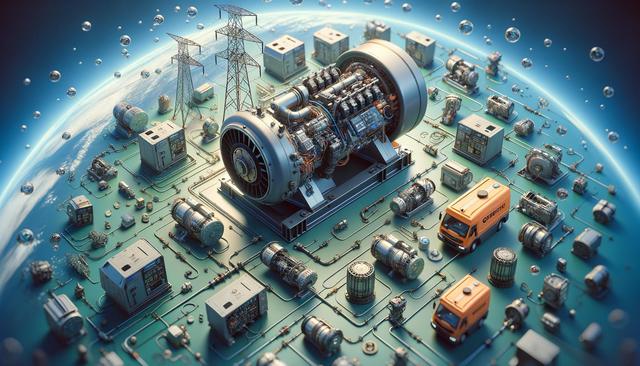Types of Generators Available for Sale
Generators come in various models, each designed to meet different power needs. When browsing generators for sale, it’s useful to understand the main types available. The most common categories include portable, inverter, and standby generators. Portable generators are ideal for temporary use, like during power outages or at remote job sites. Inverter generators offer cleaner and quieter energy, making them a good choice for sensitive electronics or camping. Standby generators, on the other hand, are permanent installations that automatically kick in when your home loses power.
Each type has its benefits depending on your intended use:
- Portable Generators: Easy to move and often more affordable.
- Inverter Generators: Quieter operation with consistent power output.
- Standby Generators: Fully automated and suited for whole-house coverage.
Understanding these categories helps narrow down your choices based on whether you need a temporary power solution or long-term protection against outages.
Fuel Options and Efficiency
One of the most important considerations when comparing generators for sale is the fuel type. Different fuel sources affect not only the cost of operation but also the availability and environmental impact. Common generator fuels include gasoline, diesel, propane, and solar. Gasoline-powered models are widely available and easy to refill but may not be ideal for long-term storage. Diesel generators are known for their durability and efficiency, especially in larger units. Propane is a cleaner-burning option and stores well for extended periods. Solar-powered generators are increasingly popular for their environmentally-friendly nature, though they may not deliver high wattage for heavy-duty use.
Here’s a quick comparison of fuel types:
- Gasoline: Readily available but less stable for storage.
- Diesel: Efficient and long-lasting for large-scale needs.
- Propane: Clean burn and long shelf life.
- Solar: Renewable and silent, but limited in power output.
Choosing the right fuel type can help ensure the generator meets both your performance requirements and budget over time.
Key Features to Consider
Modern generators come equipped with a variety of features that enhance usability, safety, and convenience. When exploring generators for sale, keep an eye out for features that align with your specific needs. For example, models with electric start functions simplify operation, while automatic transfer switches are valuable for standby units that need to activate without user intervention. Other helpful features might include multiple outlets, fuel gauges, low-oil shutoff, and digital load displays.
Some standout features to consider include:
- Electric Start: Makes turning on the generator easier and faster.
- Multiple Outlets: Allows you to power several devices simultaneously.
- Low-Oil Shutoff: Protects the engine by turning off the generator when oil is low.
- Noise Level Control: Especially important for residential or nighttime use.
Investing in a generator with the right feature set can make a significant difference in performance and user satisfaction.
Power Output and Sizing
Choosing the right size generator is crucial to ensure it can handle the load you plan to put on it. Generator power output is measured in watts, and understanding your energy needs will help you select a unit that provides adequate power without overpaying for capacity you won’t use. Start by listing the appliances and devices you want to keep running during an outage or at a job site. Add up the total wattage, and then look for a generator that delivers at least that amount, adding a buffer for safety.
Here are some general wattage estimates for common items:
- Refrigerator: 600-800 watts
- Space Heater: 1,500 watts
- Television: 100-400 watts
- Sump Pump: 900-1,200 watts
- Lights: 60-300 watts (depending on number and type)
It’s always better to slightly overestimate your power needs to avoid overloading the machine. Many sellers of generators for sale offer sizing tools or customer support to help with this process.
Where to Buy and What to Look For
When searching for generators for sale, you’ll find options both online and in physical stores. Online platforms often offer a wider selection and user reviews, while local stores provide the advantage of in-person assistance and immediate availability. Regardless of where you shop, it’s important to buy from a reputable source that offers warranty options and clear return policies. Look for models that have been tested and certified by recognized safety standards organizations.
Here are some tips for a smart purchase:
- Check Reviews: Learn from other buyers’ experiences.
- Compare Prices: Evaluate different models with similar specs.
- Read the Warranty: Know what’s covered and for how long.
- Ask About Support: Ensure parts and service are available.
Taking the time to research and compare before buying can help you find a generator that meets your needs and provides long-lasting value.
Conclusion
Finding the right generator for your home or work site means balancing power needs, budget, and long-term reliability. Whether you’re looking for a portable unit for occasional use or a standby system for uninterrupted power, there are many options on the market to fit your specific situation. By understanding the types of generators available, fuel choices, key features, and sizing requirements, you can make an informed purchase that keeps your lights on and your tools running, even when the grid goes down.


